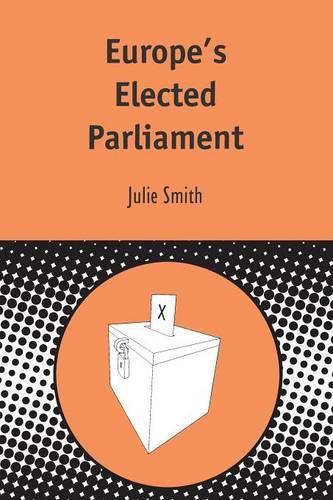
Europe's Elected Parliament
(Paperback)
Publishing Details
Europe's Elected Parliament
By (Author) Julie Smith
Bloomsbury Publishing PLC
Sheffield Academic Press
1st May 1999
United Kingdom
Classifications
Tertiary Education
Non Fiction
International institutions / intergovernmental organizations
341.2424
Physical Properties
Paperback
198
290g
Description
'An invaluable survey of the origins and development of the European Parliament, and of its uncertain role in narrowing the gap between European institutions and voters. Julie Smith traces the rising influence of the European Parliament over EU policy-making in the 20 years since it was first elected, the extension if its authority through successive Inter-governmental Conferences, and the ambiguities which nevertheless persist over its legitimacy as representing 'the people' in its dialogue with the Commission and Council.' WILLIAM WALLACE 'Julie Smith places the fifth direct elections to the European Parliament in the broader context of the EU's development. She examines the arguments and debates which surrounded the creation and evolution of a unique institution, considers the effects which direct elections have had - not always those expected - and the growing relations between EP political groups and national parties. She argues that national politicians should more openly acknowledge the shift in the balance of powers which European integration has caused.' MARTIN WESTLAKE This title is published in conjunction with UACES, the University Association for Contemporary European Studies. UACES web site can be found at www.uaces.org
Reviews
'An invaluable survey of the origins and development of the European Parliament, and of its uncertain role in narrowing the gap between European institutions and voters. Julie Smith traces the rising influence of the European Parliament over EU policy-making in the 20 years since it was first elected, the extension if its authority through successive Inter-governmental Conferences, and the ambiguities which nevertheless persist over its legitimacy as representing 'the people' in its dialogue with the Commission and Council.' WILLIAM WALLACE -- William Wallace
'Julie Smith places the fifth direct elections to the European Parliament in the broader context of the EU's development. She examines the arguments and debates which surrounded the creation and evolution of a unique institution, considers the effects which direct elections have had - not always those expected - and the growing relations between EP political groups and national parties. She argues that national politicians should more openly acknowledge the shift in the balance of powers which European integration has caused.' MARTIN WESTLAKE -- Martin Westlake
Author Bio
Julie Smith is Teaching Fellow in European Studies at the Centre of International Studies, Cambridge, and Fellow of Robinson College, Cambridge.
